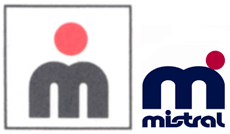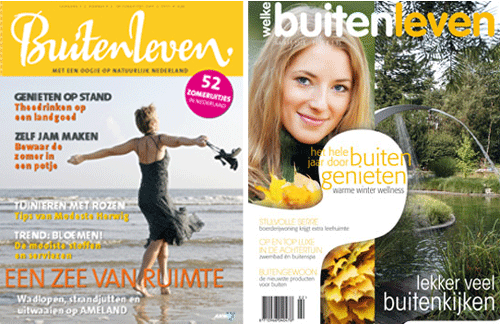 Rechtbank Amsterdam, 25 maart 2009 en 4 november 2009, HA ZA 07.2745, Adviespraktijk Amsterdam Zuid Oost B.V. tegen Boards and More Holding AG (met dank aan Wouter Pors, Bird & Bird).
Rechtbank Amsterdam, 25 maart 2009 en 4 november 2009, HA ZA 07.2745, Adviespraktijk Amsterdam Zuid Oost B.V. tegen Boards and More Holding AG (met dank aan Wouter Pors, Bird & Bird).
Merkenrecht. Afgebroken onderhandelingen over een merkoverdracht (volgend op een vaststellingsovereenkomst). Geen verplichting tot nakoming of dooronderhandelen, wel schadevergoeding voor juridische kosten.
2.1 Adviespraktijk is eigenaar van het hierna afgebeelde beeldmerk dat sinds 23 mei 1977 is geregistreerd bij het Benelux-Bureau voor de Intellectuele Eigendom. In 1993 is een geschil ontstaan tussen partijen over het gebruik van een beeldmerk door (een rechtsvoorganger van) Boards and More dat lijkt op dat van Adviespraktijk. Bij vonnis van 25 november 1998 heeft de rechtbank Almelo het gebruik van het gelijkende beeldmerk door Boards and More verboden. Naar aanleiding van deze kwestie hebben partijen in maart 2001 een vaststellingsovereenkomst gesloten.
(…)
Dooronderhandelen: 5.5 De vordering onder 3.1 C. heeft betrekking op dooronderhandelen. Daarvoor is geen grond indien Boards and More de onderhandelingen in de gegeven omstandigheden mocht afbreken. Daarbij heeft als uitgangspunt te gelden dat ieder der partijen - die verplicht zijn hun gedrag mede te laten bepalen door de gerechtvaardigde belangen van de ander - in beginsel vrij is onderhandelingen af te breken. Dit is slechts anders indien dit onaanvaardbaar zou zijn, op grond van gerechtvaardigd opgewekt vertrouwen door de wederpartij dat een overeenkomst tot stand zou komen, dan wel in verband met bijzondere omstandigheden van het geval.
(…)
5.7. Op grond van dit e-mail verkeer kan worden vastgesteld dat er circa vier jaar is onderhandeld, hoewel Boards and More steeds heeft aangedrongen op voortgang in verband met verlies aan commerciële mogelijkheden van het beeldmerk. Gelet op deze relatief lange periode is het alleszins aannemelijk dat - zoals Boards and More aanvoert - nieuwe commerciële inzichten hebben geleid tot de conclusie dat het beeldmerk niet langer winstgevend kon worden geëxploiteerd. Dit is door Adviespraktijk ook niet (gemotiveerd) betwist. Adviespraktijk heeft aldus gaande de onderhandelingen niet of onvoldoende rekening gehouden met de gerechtvaardigde belangen van Boards and More. Adviespraktijk wist immers dat Boards and More zo snel mogelijk met het beeldmerk de markt op wilde teneinde de commerciële mogelijkheden zoveel mogelijk te kunnen benutten. In zoverre stond het Boards and More vrij uiteindelijk - toen de commerciële haalbaarheid van het beeldmerk in het gedrang kwam - de onderhandelingen af te breken. Het moge zo zijn dat Boards and More tot op zeker moment het vertrouwen heeft gewekt dat een overeenkomst tot de reële mogelijkheid behoorde, doch nu de onderhandelingen zolang hebben geduurd en uiteindelijk nog geen volledige overeenstemming bestond, mocht Boards and More er in beginsel een punt achter zetten. De vordering tot door onderhandelen, zoals genoemd onder 3.1 C. zal daarom ook worden afgewezen.
Schadevergoeding: 5.8 Blijft over de vraag of Boards and More de onderhandelingen mocht afbreken zonder enige schadevergoeding, zoals ligt besloten in de vordering onder 3.1 D. De omstandigheden van het geval, met name het verloop van de onderhandelingen kunnen meebrengen dat die niet kunnen worden afgebroken zonder de schade te vergoeden. De rechtbank ziet evenwel, gelet op het voorgaande, geen gronden voor vergoeding van het positieve contractbelang. (..)
5.9 Aan de ander kant kan worden vastgesteld dat Boards and More gedurende de gehele onderhandelingsperiode Adviespraktijk nimmer (duidelijk) heeft gewaarschuwd voor het risico dat de onderhandelingen, met het oog op de lange duur, uiteindelijk op niets zouden kunnen uitdraaien. Boards and More heeft tot aan de afspraak voor februari 2006, die door haar is afgezegd, de onderhandelingen met Adviespraktijk gaande gehouden, terwijl zij wist dat Adviespraktijk daardoor (juridische) kosten bleef maken. Het ligt derhalve in de reden dat de directe kosten aan de zijde van Adviespraktijk, verband houdende met de onderhandelingen, door Boards and More worden vergoed. (…)
(schadeberekening in eindvonnis)
Lees de vonnissen hier of hieronder:
 Hof van Cassatie van België, 22 oktober 2009, nr. C.08.0411.N, Benelux-organisatie voor de Intellectuele Eigendom tegen Janssen Pharmaceutica.
Hof van Cassatie van België, 22 oktober 2009, nr. C.08.0411.N, Benelux-organisatie voor de Intellectuele Eigendom tegen Janssen Pharmaceutica. Rechtbank Arnhem, 28 oktober 2009, LJN: BK2776, eiseres tegen gedaagde (Gark).
Rechtbank Arnhem, 28 oktober 2009, LJN: BK2776, eiseres tegen gedaagde (Gark). Vzr. Rechtbank ’s-Gravenhage, 5 november 2009, KG ZA 09-1340, Tell Sell IE B.V. c.s. tegen Fitness-Import BV
Vzr. Rechtbank ’s-Gravenhage, 5 november 2009, KG ZA 09-1340, Tell Sell IE B.V. c.s. tegen Fitness-Import BV Rechtbank Amsterdam, 25 maart 2009 en 4 november 2009, HA ZA 07.2745, Adviespraktijk Amsterdam Zuid Oost B.V. tegen Boards and More Holding AG (met dank aan Wouter Pors,
Rechtbank Amsterdam, 25 maart 2009 en 4 november 2009, HA ZA 07.2745, Adviespraktijk Amsterdam Zuid Oost B.V. tegen Boards and More Holding AG (met dank aan Wouter Pors,  Hof Amsterdam, 3 november 2009, zaaknummer 200.017.850/01 SKG, Media Mij B.V. tegen ANWB B.V. (met dank aan Meta Kuyvenhoven,
Hof Amsterdam, 3 november 2009, zaaknummer 200.017.850/01 SKG, Media Mij B.V. tegen ANWB B.V. (met dank aan Meta Kuyvenhoven, 


























































































